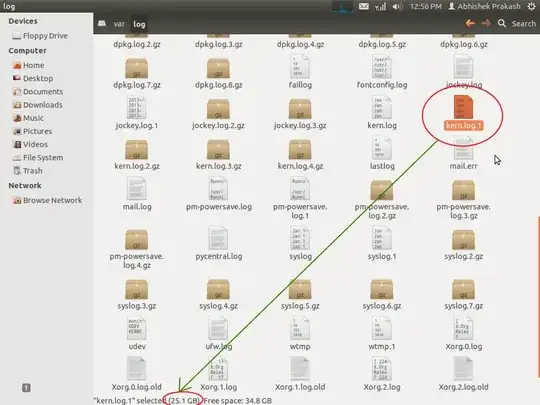kern.log.1 is just one of many of the kernel log files.
Together they and the messages.log.x group can take up many Gb. The rest of the log files in the directory take up about 1% of the total so there is no need to try to mass-wipe the log directory. It might even be harmful to your system..
To reclaim that 99% here are two commands that will do the trick by deleting the unnecessary multi-GB files:
sudo rm /var/log/kern* &>/dev/null
sudo rm /var/log/messages* &>/dev/null
These files will be created again the first time they are needed.
To answer your question specifically: You can set up a cron job to delete them at each midnight, or once a week, whichever.
I use them plus
rm -rf ~/.cache/chromium/Default/Cache/* &>/dev/null
for my midnight rsync backup from the primary /dev/sda SSD to the larger /dev/sdb HDD. It saves on space and they are unnecessary in any kind of restore scenario.

kern.log.1the only large file? – qbi Jan 10 '13 at 08:15